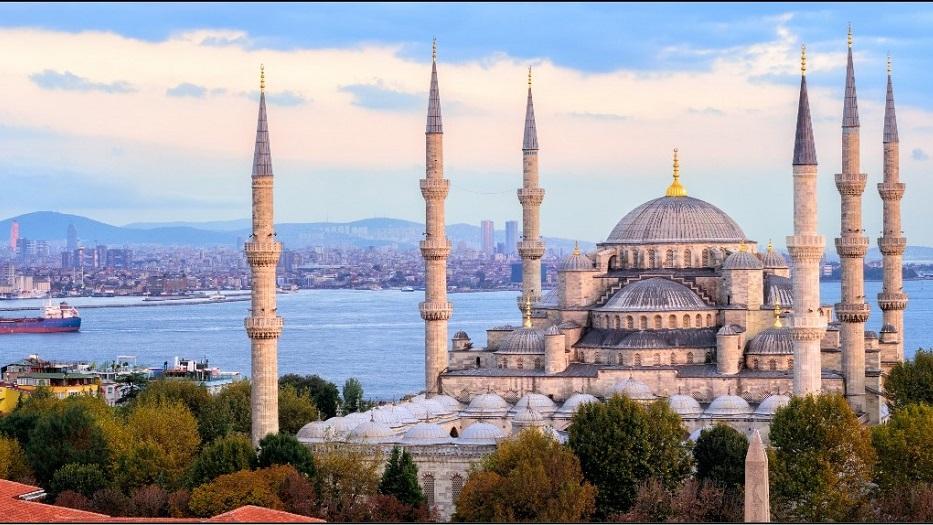Cristina Leon Vera | 21/09/2023
Türkiye has experienced significant economic growth in recent decades, especially since the 1980s, when the country undertook a series of reforms that have enabled the liberalization of its economy and the opening of international trade.
As indicated in the latest report published by ICEX on the region, Türkiye is an emerging economy with a GDP of over US$700,000 million and a population of more than 80 million people. That is why, despite the political and social challenges it has faced in recent years, it remains an attractive destination for foreign investment and international trade.
Diversity and strength in the Turkish economy
The most prominent sectors of the Turkish economy are the service sector, which accounts for about 64% of GDP, followed by the industrial sector, which accounts for about 27% of GDP, and the agricultural sector, with about 9% of GDP. In terms of infrastructure, it has a highly developed transportation network of roads, railroads, ports, and airports. Moreover, the country has invested significantly in renewable energy in recent years and 53% of its installed capacity comes from renewable sources.
One of the strengths of its economy is its strategic geographic location, its skilled workforce, and its diversified industrial fabric. The country has also experienced a strong economic recovery following the COVID-19 pandemic.
However, there are also some weaknesses, such as its dependence on energy and intermediate goods imports, high inflation (72% in 2022), and weak local currency, as well as uncertainty surrounding monetary policy.
Attractive to foreign investors
In recent years, Türkiye has attracted the attention of foreign investors, especially because of its large domestic market and the key factors mentioned above. The government has also implemented policies to encourage investment and has established bilateral agreements with countries such as Chile and Switzerland, in addition to its collaboration with the European Union.
In this context, it has also become an attractive destination for Spanish companies, due to good logistics communication and the business opportunities it offers, thanks to agreements with the Government of Spain to promote investment and trade between the two countries.
Other economic powers such as the United States, Japan, and China have extended their commercial networks in the region and are strengthening their trade in Türkiye.
The main sectors attracting foreign investment are finance, food and beverage production, manufacturing of computers and electrical, electronic, and optical equipment, hospitality, and IT services. In addition, Türkiye has also attracted significant investments in the mining and real estate sectors.
Türkiye’s international trade
With a diverse economy and strong position in global trade, Türkiye focuses on exporting textiles, chemicals, and machinery to nations such as Germany, the United Kingdom, Italy, and the United States. In 2022, it generated exports worth US$198,000 million.
On the other hand, its imports, mainly machinery, chemicals, and fuels, totaled US$234,000 million, with China, Germany, Russia, and the United States as the main suppliers. Thus, although it has reduced its energy dependence, it remains necessarily dependent on the volatility of the prices of oil and gas.
Its trade agreements with Spain have been gaining importance in its economic development. Exports in 2022 increased by 23% and imports by 20%, although the Spanish trade deficit rose by 13% (–€3,212 million). This evolution profile is similar to regions such as Germany, the United Kingdom, Italy, and the United States.
International trade is essential for the Turkish economy, despite obstacles such as the prices of raw materials and global uncertainty. By diversifying its exports, including advanced technology, it seeks to encourage investment and growth through infrastructure and policy improvements. This presents a future of opportunities and challenges in international trade.
Future challenges and opportunities
The region has faced political and social challenges in recent years, such as the attempted coup in 2016 and the crisis of 2018. However, it has managed to maintain its stability with measures to strengthen its economy, such as decreasing inflation and implementing structural reforms.
Through trade agreements with other countries, it seeks to reduce its dependence on specific sectors. Despite the difficulties it has faced in recent years, such as the progressive decline of its GDP or its rampant inflation, which could reach 50% in 2023, it is becoming one of the leading economic powers in the Middle East and beginning to stand out in major industries such as automotive and aerospace. In his new term in office, Erdoğan faces the challenges of further boosting Türkiye’s strategic position and industry and controlling sudden macroeconomic shifts to bring stability to the region.





